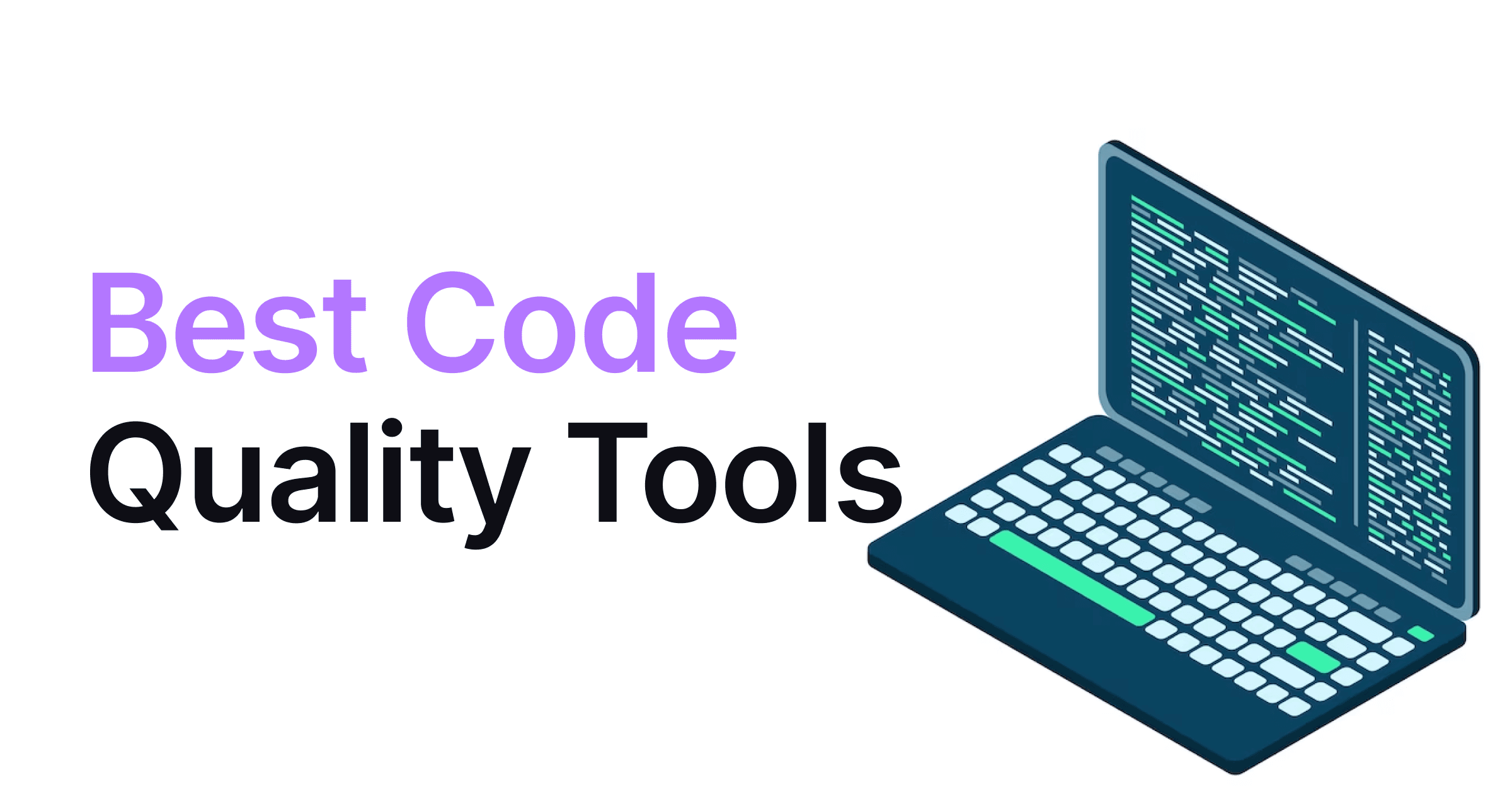AI Code Review
Code Quality
Amartya Jha
• 12 February 2025
Hey all, welcome to this guide where we dive into static code analysis and will try to keep it down-to-earth. If you are a developer or just starting out as a dev, we’ll break it down in a way that's easy to get and even enjoyable to read.
Let’s start things off by exploring why static code analysis is a must.
Why Static Code Analysis is Essential
Static code analysis is a process where your source code is examined without actually running the program. It helps spot potential errors, vulnerabilities, and style issues in the early stages of your development cycle.
Similar to having a friendly helper that catches bugs before they can cause chaos in production.
What is Static Code Analysis, and How Does It Work?
At its core, static code analysis scans your codebase using pre-set rules and patterns. It’s like having a super vigilant proofreader for your code that checks for everything from syntax errors to potential security risks. By analyzing code in this non-runtime environment, it can quickly flag problematic sections without the need for extensive testing setups.
In today’s dev environment, making sure that code quality and security isn’t just a nice-to-have—it’s essential. With the rise of cyber threats and the increasing complexity of software projects, devs are under pressure to deliver clean, secure, and maintainable code.
Static code analysis provides a safety net that helps teams identify and fix issues early, saving time and resources down the line.
Major Features
Early Bug Detection: Catch bugs before they escalate into serious issues, making debugging less stressful.
Security Enforcement: Identify vulnerabilities that could be exploited, ensuring your app is built on a strong, secure foundation.
Efficiency Boost: Automate code reviews and enforce coding standards, so you spend less time on repetitive checks and more on innovation.
By integrating static code analysis into your workflow, you're not just fixing problems—you're building a culture of quality and security in your development process.
How Static Code Analysis Works (Beyond Just Finding Bugs)
Static code analysis isn’t just about hunting bugs; it’s a comprehensive approach to making your code smarter and safer. Let’s walk through how it actually works.
The Process: Code Parsing, Rule-Checking, and Reporting
Code Parsing: The tool begins by reading your source code, breaking it down into understandable parts. It converts the code into a format that it can easily analyze.
Rule-Checking: Once parsed, the tool runs your code against a set of rules or guidelines. These rules might be about code style, security best practices, or even performance hints. This step is where the magic happens, as the tool identifies anything that doesn’t match the expected pattern.
Reporting: Finally, the tool generates a report highlighting the issues it found. This report is your go-to guide for what needs to be fixed. It often includes suggestions for how to correct the errors, making it easier to learn and improve your code quality.
Types of Static Analysis
Syntax Analysis: Structure and grammar of code. Includes lexical analysis (tokenization), parsing, and AST generation
Semantic Analysis: Focuses on meaning and behavior of code. Covers type checking, control flow, and data flow analysis
Code Quality: Evaluates maintainability and readability. Includes style checking and complexity metrics
Security Analysis: Identifies potential security vulnerabilities. Includes vulnerability detection and taint analysis
Program Verification: Uses formal methods to prove program correctness. Includes model checking and abstract interpretation
Static Analysis vs Dynamic Analysis
Common Misconceptions Developers Have
“It finds all bugs!”: While static code analysis is powerful, it won't catch every possible issue. It’s a great starting point, but it should be paired with other testing methods.
“It slows down the development process.”: Actually, catching errors early saves a lot of time later. Sure, it adds a step, but it ultimately makes your work smoother.
“It’s only for security issues.”: Not at all! It helps with overall code quality, maintainability, and performance too.
“Only for security teams.” Every dev benefits—cleaner code = happier debugging.
Now let's see why devs still rely on static code analysis(tools).
Why Developers & Companies Rely on Static Code Analysis
You have gotten the idea that this is not some fancy stuff; it is actually a lifesaver for devs and companies.
1. Preventing security vulnerabilities before production
For example, imagine you are about to deploy a payment gateway feature. Static analysis catches a hardcoded API key in your code. Crisis averted.
Tools like SCA sniff out OWASP Top 10 risks (SQLi, XSS, insecure auth) before hackers do. For companies, this isn’t just “nice”—it’s a compliance lifesaver. GDPR, HIPAA, or PCI-DSS? Static analysis helps you sleep at night.
2. Reducing technical debt and improving maintainability
For me personally, the new codebase feels like Jenga tower. Static code analysis acts like a code helper. It flags duplicated code, dead functions, and spaghetti logic. Over time, this cuts refactoring time and makes onboarding new devs easier.
Pro tip: Use it to enforce naming conventions—no more variable123 nonsense.
3. Automating code reviews and enforcing best practices
Code reviews are essential… but slow. Static code analysis automates most of the grunt work. Instead of debating tabs vs. spaces, your team focuses on architecture and edge cases. Tools like SonarQube or Codeant.ai even grade your code’s “health” (A-F), turning quality into a game.
The Best Static Code Analysis Tools for 2025
Here in this section, we will try to cover some popular static code analysis tools. Let’s start.
1. CodeAnt.ai
Most static code analysis tools either overwhelm you with noise or miss what really matters. CodeAnt.ai fixes that with a smarter, more contextual approach to SCA — one that integrates cleanly into your Git workflows and scales with your team.
It’s more than just linting or complexity checks. CodeAnt performs line-by-line reviews, flags real-world security vulnerabilities, and gives developers clear, AI-powered suggestions that improve both speed and code quality.
Why CodeAnt stands out as an SCA tool
Static analysis + PR-native feedback - It’s not just running scans in the background; it’s helping you review and fix code in real time
Security baked in - SAST, secret scanning, and Infrastructure-as-Code misconfig detection included
Smart, actionable suggestions - Get recommendations that help you improve your code, not just flag it
Custom rule engine - Enforce team-specific policies without drowning in config files
Designed for GitHub, GitLab, Bitbucket, Azure DevOps - With tight IDE + CI/CD integration
14-day free trial, No credit card required.
After that AI Code Reviews are: $10/user/month [Basic Plan], Premium plan starting from $20/user/month.
Code Quality: Starting from $375/25devs/month.
Code Security: Starting from $150/10devs/month.
2. SonarQube Community Edition
Static code analysis with SonarQube is like having a swiss army knife. It supports 20+ languages, including Java, JavaScript, and Python, making it a go-to for teams juggling multiple stacks.
Key features:
Multi-language support: Perfect for polyglot teams.
Code quality gates: Set thresholds for bugs, vulnerabilities, and code smells.
Integration-friendly: Works with Jenkins, GitHub Actions, and more.
Open-source static code analysis: The Community Edition is free forever.
3. PMD
PMD is your Java static code analysis bestie. It’s lightweight, fast, and great for catching copy-paste errors, unused variables, and overly complex code.
Key features:
Java-focused: Tailored for Java devs (but supports other languages too).
Custom rules: Write your own rules using XPath.
IDE plugins: Integrates with Eclipse, IntelliJ, and VS Code.
Open-source: Free and community-driven.
4. SpotBugs
SpotBugs is the successor to FindBugs. It’s a Java static code analysis tool that’s all about finding bugs in your bytecode.
Key features:
Bytecode analysis: Catches bugs that other tools miss.
Extensible: Add custom detectors for niche use cases.
IDE support: Works with Eclipse and IntelliJ.
Open-source: Free and actively maintained.
5. Checkstyle
Checkstyle is the Java static code analysis tool for teams obsessed with coding standards. It’s like having a style guide enforcer built into your workflow.
Key features:
Coding standards: Enforces naming conventions, indentation, and more.
Customizable: Configure rules to match your team’s style.
IDE integration: Plugins for Eclipse, IntelliJ, and NetBeans.
Open-source: Free and widely used.
6. ESLint
ESLint is the JavaScript static code analysis tool that every frontend dev loves. It’s fast, flexible, and perfect for catching sneaky JS bugs.
Key features:
JavaScript/TypeScript support: Works seamlessly with modern frameworks.
Auto-fix: Fixes common issues with a single command.
Plugin ecosystem: Add rules for React, Vue, and more.
Open-source: Free and highly customizable.
7. Clang Static Analyzer
Clang Static Analyzer is the C++ static code analysis tool for developers who take performance seriously. It’s built by the LLVM team, so you know it’s legit.
Key features:
C/C++ focus: Perfect for low-level programming.
Path-sensitive analysis: Finds complex bugs in your logic.
IDE integration: Works with Xcode, VS Code, and more.
Open-source: Free and backed by the LLVM community.
8. Cppcheck
Cppcheck is another C++ static code analysis tool that’s lightweight and easy to use. It’s great for catching memory leaks, null pointer dereferences, and other C++ gotchas.
Key features:
Tailored for C++ devs.
Low false positives: Focuses on real issues, not noise.
Standalone tool: No need for complex setup.
Open-source: Free and beginner-friendly.
9. Brakeman
Brakeman is the Ruby static code analysis tool that keeps your Rails apps secure. It’s like having a security guard for your Ruby code.
Key features:
Ruby on Rails focus: Catches SQLi, XSS, and other Rails-specific issues.
Fast scans: Perfect for CI/CD pipelines.
Detailed reports: Highlights vulnerabilities with actionable fixes.
Open-source: Free and trusted by Rails devs.
10. OCLint
OCLint is the Object-C/C/C++ static code analysis tool for iOS and macOS developers. It’s great for keeping your Objective-C code clean and bug-free.
Key features:
Objective-C support: Tailored for Apple developers.
Custom rules: Write your own rules for niche use cases.
CI/CD integration: Works with Jenkins and Travis CI.
Open-source: Free and community-driven.
11. Splint
Splint is the C static code analysis tool for developers who want to write bulletproof C code. It’s a bit old-school but still packs a punch.
Key features:
C language focus: Perfect for legacy C projects.
Annotation support: Add comments to guide the analyzer.
Lightweight: No bloat, just results.
Open-source: Free and simple to use.
12. Semgrep
Semgrep is the multi-language static code analysis tool that’s taking the dev world by storm. It’s fast, flexible, and supports 10+ languages, including Python, JavaScript, and Go.
Key features:
Multi-language support: Great for polyglot teams.
Custom rules: Write rules in a simple YAML format.
CI/CD integration: Works with GitHub, GitLab, and more.
Open-source: Free Trial available with a pro tier starting from $40/user/month.
13. CodeScene
CodeScene is the behavioral code analysis tool that goes beyond static analysis. It uses machine learning to predict hotspots and technical debt in your codebase.
Key features:
Behavioral analysis: Identifies risky code based on team activity.
Multi-language support: Works with Java, C#, and more.
Visual reports: Easy-to-understand dashboards.
Paid tool: Free trial available. Paid plans starting from €18/user/month.
14. Coverity
Coverity is the enterprise-grade static code analysis tool for teams that need top-notch security and scalability. It’s trusted by Fortune 500 companies for a reason.
Key features:
Multi-language support: Covers C, C++, Java, and more.
Deep analysis: Finds complex security vulnerabilities.
Enterprise-ready: Scales for large teams.
Paid tool: Free trial available.
15. Opengrep
Opengrep is the lightweight static code analysis tool for developers who want simplicity. It’s great for quick scans and small projects.
Key features:
Fast scans: Perfect for quick checks.
Custom rules: Write your own rules with regex.
Open-source: Free and easy to use.
Let’s see how you can get started with static code analysis today.
How to Get Started with Static Code Analysis Today
1. Choosing the right tool for your needs [Checklist]
Not all tools are created equal. Here’s a no-BS checklist:
✅ Language support: Does it work with your stack? (Java? JS? Python?)
✅ Rule customization: Can you tweak rules or add custom ones?
✅ CI/CD integration: Does it plug into GitHub Actions, GitLab, Jenkins?
✅ False positive control: Can you suppress noise without losing signal?
✅ Pricing: Free tier? Pay-per-user? (Start free, then scale.)
✅ Solution Type: On-premise? Or cloud-hosted?
2. Simple SCA Implementation
1. Initial Setup 🛠️
Choose Tools: Pick tools that match your programming languages and team size
Configure Rules: Start with essential rules that catch common bugs
Set Severity Levels: Define what's blocking vs. warning
2. Integration 🔄
IDE Setup: Give developers instant feedback while coding
CI/CD Pipeline: Automate checks during builds
Pre-commit Hooks: Catch issues before they enter the codebase
3. Team Process 👥
Developer Training: Show the team how to use and benefit from the tools
Code Review Integration: Make static analysis part of review process
Feedback Loop: Listen to team feedback and adjust rules accordingly
Start small -> Automate everything possible -> Make fixing issues easy for devs -> Review and adjust rules.
Conclusion
Static code analysis isn’t just a tool—it’s a mindset. It’s about writing code that’s not just functional but exceptional. From SonarQube for multi-language projects to ESLint for JavaScript wizards, and Brakeman for Ruby on Rails enthusiasts, there’s a tool for every need.
But if you’re looking for something that combines AI-powered insights, multi-language support, and seamless integration into your workflow, Codeant.ai is the way to go.
Thank you for reading and Happy finding bugs🚀.























